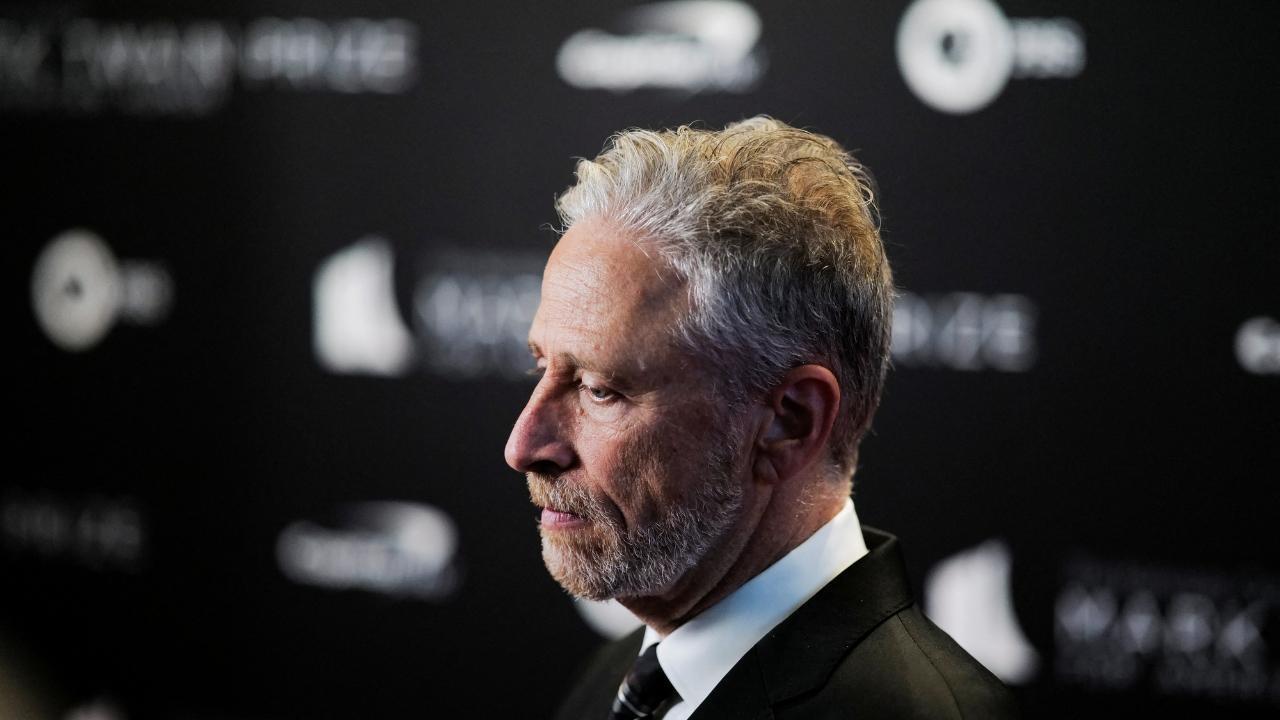
UAE and Yemen Strengthen Legal and Judicial Cooper
UAE and Yemen attorney generals met in Abu Dhabi to strengthen legal ties, enhance public prosecutio

Photo:reuters
Media Power, Political Pressure, and the Cost of Creative Independence
The cancellation of The Late Show with Stephen Colbert has ignited a firestorm in the media world—not only for its surprising timing, but for what it reveals about the current landscape of free speech, corporate influence, and the fragile status of political satire in the age of authoritarian nostalgia.
At the heart of the controversy lies an uneasy intersection of entertainment, politics, and business consolidation. For Jon Stewart, Colbert’s longtime friend and former Daily Show colleague, the situation is more than just a disappointing programming decision—it’s emblematic of a dangerous shift in corporate media, where the truth is negotiated, not reported.
Stewart’s Warning: Corporations Are Compromising Integrity
In his cutting monologue, Jon Stewart framed the cancellation not as a result of viewership decline or creative fatigue, but rather a preemptive compliance with political forces that have grown hostile to dissent. Stewart's critique was rooted in the broader question: Who controls the media narrative? And more importantly—who gets silenced when power is threatened?
When CBS settled a defamation suit brought by former President Donald Trump—paying a reported $16 million—it immediately drew scrutiny. The network claimed this was a cost-saving move to avoid prolonged litigation. But within days, they also announced Colbert’s show would end in May 2026, a suspiciously well-timed development as Paramount, CBS’s parent company, seeks regulatory approval for its merger with Skydance Media.
For Stewart, the writing was on the wall: this wasn’t coincidence—it was cowardice.
He pointed out that Colbert’s show remained the most-watched late-night program for nearly a decade. And even if it didn’t deliver massive profits, it offered cultural cachet, political relevance, and authenticity that few others could replicate.
The Economic Myth of “Unprofitable Comedy”
Critics of the cancellation have dismantled CBS’s argument that The Late Show was too expensive to sustain. Despite a reported $40–50 million annual loss, Colbert’s program brought in over $400 million in yearly ad revenue during its peak and held a stable fanbase—demographics advertisers craved.
Moreover, late-night shows historically act as loss leaders—meaning their primary value isn’t always tied to profits. They provide brand recognition, cultural positioning, and soft power for networks, helping to sell larger advertising packages across a company’s entire portfolio.
By cancelling Colbert’s show, CBS may have sacrificed long-term cultural relevance to demonstrate short-term political neutrality in the eyes of regulators and stakeholders.
Colbert’s Response: Humor as Resistance
Stephen Colbert, never one to shy away from sharp satire, used his platform to respond. After the cancellation announcement, he returned to the air with a vengeance, stating, “The gloves are off.” No longer tethered to future deals or worried about advertiser pullout, Colbert turned his satire even more pointedly toward those in power—especially Trump.
During one broadcast, he used his now-famous “eloquence cam” to tell Trump: “Go f--- yourself.” The moment was shared widely, generating applause and backlash alike. But it also reaffirmed Colbert’s role not just as a comedian, but as a cultural commentator who helped audiences process national trauma, political upheaval, and democratic decay with wit and clarity.
The Long History Between Colbert and Stewart
Jon Stewart and Stephen Colbert’s careers have been intertwined for decades. Stewart, who hosted The Daily Show from 1999 to 2015, was instrumental in launching Colbert’s satirical news persona. When Colbert left The Colbert Report to replace David Letterman on The Late Show, Stewart served as mentor and frequent creative advisor.
So Stewart’s passionate defense of Colbert wasn’t just friendship—it was a defense of values: of honesty, of resisting authoritarian narratives, and of preserving satire as a last line of truth-telling in American media.
His critique of CBS—filled with expletives, mockery, and biting satire—was an urgent call to action. For Stewart, if the network was willing to bend this easily to Trump, what would they give up next?
The Larger Media Ecosystem: A Retreat from Satire
The timing of Colbert’s cancellation also follows a disturbing trend in the late-night and political comedy space:
Samantha Bee’s Full Frontal was cancelled in 2022 despite solid ratings.
Hasan Minhaj’s Patriot Act was abruptly cut by Netflix, reportedly due to discomfort from corporate sponsors.
Trevor Noah stepped down from The Daily Show in 2022, citing burnout—but also hinting at frustrations within network structures.
In this climate, Colbert’s show felt like one of the last truly bold platforms. Its loss is symbolic of a shrinking space for dissenting comedy, especially in a media ecosystem increasingly consolidated and fearful of political retribution.
A Collision Course with the 2026 Election
The end of The Late Show comes at a critical political moment. The U.S. presidential election in November 2026 is shaping up to be one of the most contentious in modern history. Trump’s reemergence on the political stage—combined with aggressive media litigation and hostile rhetoric toward the press—means satire is more essential than ever.
Colbert’s nightly takedowns of political hypocrisy offered more than laughs—they offered clarity. Losing his voice during a pivotal election year could drastically shift the public's access to smart, engaging critique.
Industry Solidarity and Political Repercussions
The backlash against CBS’s decision has been fierce:
The Writers Guild of America East has demanded an investigation by the New York Attorney General into whether CBS’s settlement with Trump constitutes a form of corrupt political appeasement.
Political figures such as Rep. Alexandria Ocasio-Cortez and Sen. Elizabeth Warren have denounced the merger, arguing it raises First Amendment concerns.
The Writers Guild and Directors Guild are reportedly considering strikes or legal challenges to CBS if it is proven that Colbert’s content was censored or discouraged due to political pressure.
This is no longer just about a TV show. It’s about corporate self-censorship, and whether major media platforms are willing to sell out free expression for mergers and stock bumps.
What Happens to the Audience?
For millions of Americans—and international viewers too—The Late Show was a sanctuary of truth, laughter, and sanity amid chaotic news cycles. Colbert brought not just comedy, but empathy, intellect, and perspective. Stewart’s defense underscores just how devastating this loss could be to public discourse.
The network’s decision forces viewers to confront a haunting possibility: that media platforms once designed to challenge power are becoming increasingly subservient to it.
The Battle Ahead: Can Comedy Still Speak Truth to Power?
As this situation unfolds, bigger questions loom:
Will Colbert be given freedom to speak his mind during his final months on air?
Will CBS and Paramount face consequences for bowing to Trump’s legal threats?
Can late-night survive as a space for political critique in a time of increasing media consolidation?
And crucially: what will Jon Stewart do next?
If history is any guide, Stewart doesn’t enter battles halfway. His monologue wasn’t just a defense of Colbert—it was a rallying cry. One that may well define the media’s role in the coming political era.
Jon Stewart’s searing takedown of CBS is about more than just Stephen Colbert. It’s about defending truth, satire, and the vital role of comedy in democracy. As CBS trades its journalistic integrity for short-term compliance, Stewart reminds us what’s truly at stake.
Not just a show.But a voice.A platform.A truth.And if that’s lost—we’re all worse off for it.